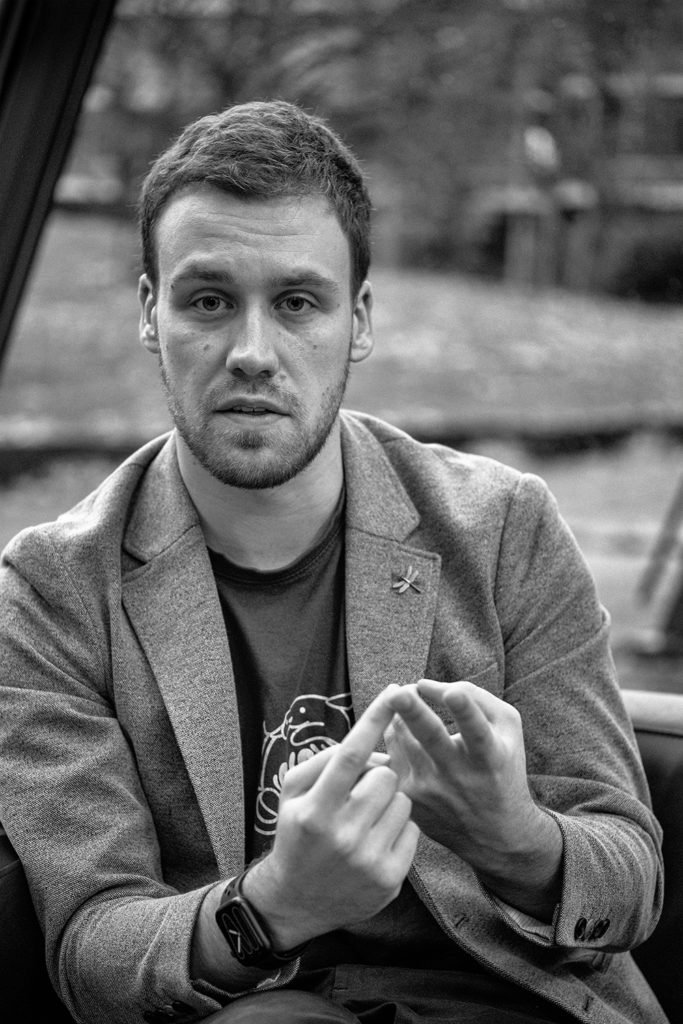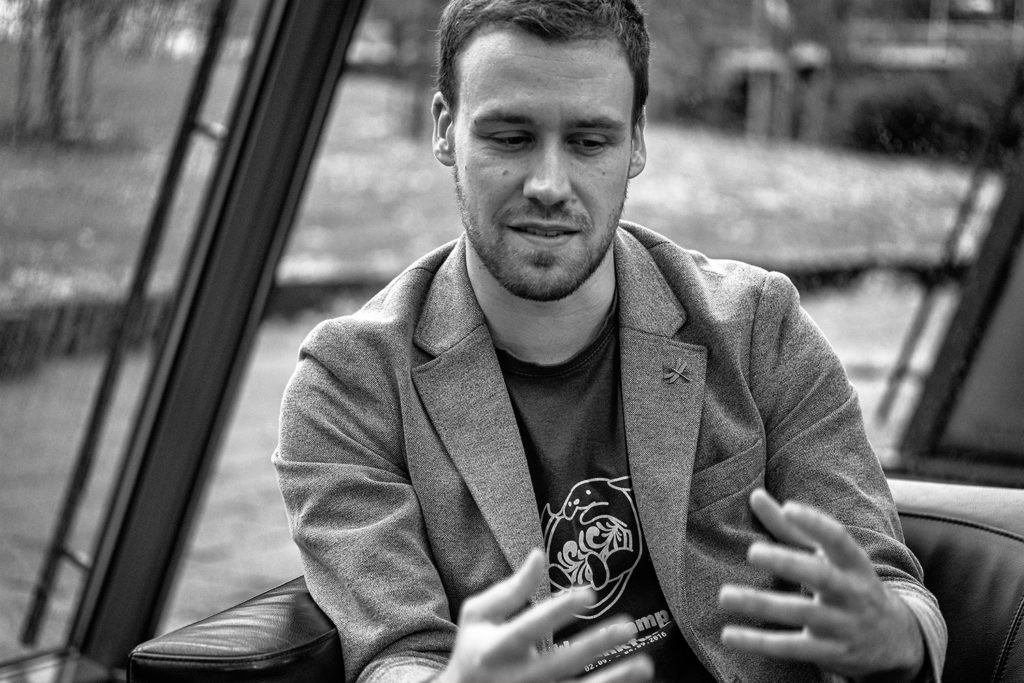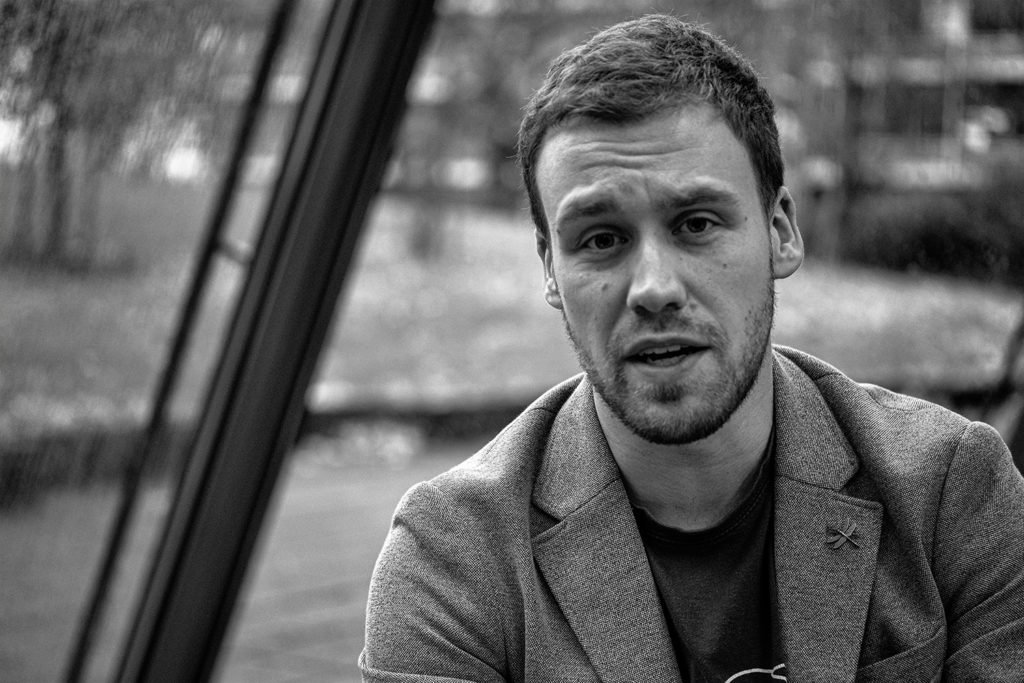
Name: Simon Kraft
Website: https://simonkraft.de
Martin: Simon, why don’t you share your WordPress story with us?
Simon: With pleasure. I have been working with WordPress for 12 years. In fact the first CMS I used to build a website was Joomla! This website was hacked after just one week, but that wasn’t because of Joomla! but because of my insecure password. The frustration was still high and I didn’t want to start the whole thing again with Joomla!
At that time I was a reader of Kulturbanause.de. There was much talk about WordPress at the time. So I simply tried this WordPress. While using it I felt comfortable, but unfortunately I also made some bloody beginner’s mistakes (laughs). For example, it wasn’t a good idea to adjust WordPress theme files directly, because these changes were gone after the next update.
So I learned how child themes work and how to use them. I also had to learn the hard way to use secure WordPress plugins, because otherwise really bad things can happen.
Then in 2012 I realized that I already knew quite a lot about WordPress and could help others with it. At the “WP-Camp” in Berlin I heard about local WordPress Meetups for the first time. Without even a second hesitation I thought: “Cool, I must have that too!” That’s how the idea of setting up a WordPress meeting in Frankfurt came around the corner. In the run-up I asked myself how exactly I should approach this Meetup and what has to be considered. Caspar Hübinger replied to me: “Don’t worry, you will meet a lot of people. They are all super nice and you will meet good friends“.
Caspar’s prediction came true one hundred percent: a lot of exciting people meet each other at WordPress meetings. That’s exactly what I find so appealing about the community. Because WordPress is so widespread, there are so many different people, diverse in their background and diverse in what they do. For example, there are users and developers, as well as people from the design world. Interacting with all these people is simply fun.
Martin: If I remember correctly, then you don’t have an IT background? Correct?
Simon: Yes that’s right. I come from biology, which is a very obvious field (laughs).
Martin: How do you get from biology to WordPress?
Simon: I’ve worked with WordPress before, was active in the community, travelled a lot and earned money with it even before my studies. I also never had the idea to earn money with my study subject. In Germany, scientific work is rather precariously paid. So I studied biology out of interest – but seriously, it was not a sham study.
Martin: You are someone who likes to organize? For example WordCamps?
Simon: I organize a WordCamp from time to time. But as a repeat offender I always need some time, a break in between.
Martin: Would you agree with me that the personal commitment to the WordPress community is returned in a much greater extent?
Simon: Yes, definitely! Look: I’ve been organizing WordPress meetings for several years now. No one is paid for this work. There’s not the “WordPress company” behind you or us who give you money for the many hours you spend. Nevertheless, this work is worth it on a personal level, but also on a professional one.
From the first day in the community I met people who work on different tasks I can’t handle. Although I have a flair for design, but I am not a designer. So it’s super important to know people who can do that, working in a WordPress context. So you don’t always have to explain all things from scratch. It’s also important to have people with whom I can talk about things that concern me.
We very often have participants who say: “I like to use the WordPress Meetups to get away from home and to be able to talk to other people“.
These are people who work remotely from home in the Internet. This helps freelancers in particular not to lose interpersonal contact, not to become lonely, and to have a kind of “peer group” working in a similar field.
In my family, for example, I have been explaining my job for ten years. So if there is someone who has the same level of knowledge, where I can be the nerd I actually am … there is something very healing about that.

Martin: Is this an outing as a WordPress nerd?
Simon: Yes! I’m proud of that, too.
Martin: To your WordPress story belongs the highly actual climate issue and discussion. You have also raised your own project for this. What is it about exactly?
Simon: I look at the topic beyond WordPress: I think about the web and the climate. That’s not that simple. When driving a car, we all know that we have a certain CO₂ output for each route we drive – so it’s a very logical concept.
On the web, the whole thing is much more abstract: On the one hand, most of the energy is not consumed directly by the user, on the other hand we have consequences that are not foreseeable at first glance.
What makes one website more harmful to the climate than another? People don’t usually think in such categories. Therefore I have a lecture program, with which I am currently tingle through Germany and Switzerland. Basically, after my talks there are people sitting there who say: “Oh my God, that’s totally logical“. But I’ve never thought of that before!
I came to this track on a similar path. At the WordCamp 2017 in Paris I spoke with Tom Greenwood. Tom has co-founded an agency in London that deals with exactly this topic.
During our conversation I had exactly this “aha-moment”: Of course my web pages also eject CO₂. But i never thought on that issue before.
On the one hand, my goal is to raise awareness and get people to think about what their own websites do, what their own behaviour on the internet contributes to it, e.g. such as video streaming: This has nothing to do with WordPress, but it is extremely harmful to the climate.
I would like to encourage these people to improve their sites and make them faster, and in the end use less energy. But I also want to get these people also to spread the topic, this idea as a multiplier and to put the whole thing on a more global scale. WordPress currently represents one third of the web – one third of all websites run with WordPress. So if we can improve WordPress in such a way that all these websites get even small performance improvements, this means in reverse that hundreds of thousands of tons of CO₂ can be saved per year.
Martin: Would you wish for more support from politicians or from big hosters?
Simon: I would wish for more support from all sides!
Martin: Well, but it’s already easier to spread this topic over central minds or organizations.
Simon: This topic is a bit political in the WordPress project itself. To get such ideas accepted you have to reach the right people and convince them that the topic is a worthwhile approach and should be implemented. There’s already a certain amount of political support.
Furthermore, the support of companies, hosters or other providers from within the WordPress ecosystem is absolutely necessary. Without this support this will not work in the medium and long term. Not only for me, but also for the idea itself.
The obstacle in the web context is not technical. The techniques to build fast and data-saving websites have been around for a long time. Once again: the less data is transferred, the faster and the more CO₂ economical a website is. In my opinion, we should practice a little renunciation and think about what is relevant for our websites and what is not. Is it necessary to deliver a lot of Java-Script for animations? To display an exuberant structure, or to transfer large background pictures or videos? We should focus much more on a new set of values that we can apply to our websites. Even more minimalist websites focusing content can leave a lasting impression, in an ambiguous sense.
Martin: What does your longer-term plan looks like? Bringing the topic into the WordPress community is only one step. How is the idea supposed to get into the mind of other people? Will there be a kind of “Fridays for sustainable WordPress”?
Simon: The website for this project is called “wpforfuture“. The goal is to collect ideas in several places. A whole series of conferences is connected to WordPress, in 2019 there will be almost two hundred WordCamps worldwide and more than five thousand WordPress-Meetups. This consumes a lot of resources and generates a lot of CO₂ output, but these are also opportunities to make people aware of the topic. And there are ways to significantly reduce the footprint of these events. At WordCamp Stuttgart for example, we completely dispensed with meat in our catering and saved a scant ton of CO₂ – compared to catering with meat.
Martin: And the food was delicious!
Simon: The food was very tasty. These and other ideas to save money in the WordPress context CO₂ can be found in many groups worldwide. But there is still no central place where this is collected. That means that every WordCamp that is interested in this must have the drive and the capacity to take care of it and reinvent the wheel again and again.
Martin: Wouldn’t the organizing manual be a possible central place?
Simon: Yes, there is a manual for WordCamp Organizers, hopefully there will be a chapter for it soon. This idea for that already exists. We have the same kind of knowledge on the other side when it comes to the web. We know how to build performant themes, how to create plugins that have as little impact as possible on the loading times of the website. This is not always implemented, there are not yet the right guidelines and guidelines for developers to implement this consistently.

Martin: In terms of technical depth, would you also discuss things like Brotli, Gzip or WebP? Are there already figures that speak for or against compression and image optimization on the server? Because compression on the server and decompression on the client side also consumes energy.
Simon: Compression is a difficult point. I am often asked whether there are any reliable figures or studies on this, but I don’t know any at the moment. Compressing images to achieve a smaller file size is certainly helpful because it’s a one-time process. There are also no higher energy consumptions at the client. This can be done in WordPress with plugins in the background without any problems. When packing websites with Gzip, this becomes more critical. Currently we have the assumption that more energy is used than is saved in the end. However, this cannot be proven yet.
Martin: In order to achieve reliable figures, you would need the support of companies and large hosters.
Simon: Yes, that would actually be a field in which very concrete cooperation would be really helpful. We are currently in the process of building a sustainability channel on the German-speaking Slack. In 2020 we plan to hold regular meetings there, also for all interested parties. There we want to gather ideas on how to make the topic more visible to the general public. We want to invite people in the community as well as in the extended community, i.e. all people who use WordPress, to contribute their incredible expertise from different levels.
Martin: Data economy also means leaner WordPress themes. This also pays off in the future of Gutenberg. What does your idea for the future of WordPress and Gutenberg look like?
Simon: The future of WordPress is definitely called Gutenberg. There is no way around it. Gutenberg will be the new editor interface that will accompany us for at least the next decade. Personally, I am a big Gutenberg fan. Since I never got quite warm with pagebuilders, I don’t carry around any legacies that would cause me pain changing the WordPress theme. But yes, Gutenberg is currently not yet where we wanted to see him.
I see great potential for improvement in many tasks, we have them for pagebuilders. Currently, early 2020, Gutenberg is well able to write blogposts and display all functions of the old WordPress editor. In many points Gutenberg is even better, so columns are not a problem. We are much closer to WYSIWYG than before, but there is still some room for improvement. The big keyword for future Gutenberg releases is “full site editing”. The idea here is to edit the entire website with Gutenberg. So not only the content area, but also things like the header, the logo, the navigation, all widget areas and the footer.
Martin: But that would take away some parts of the business model of theme producers.
Simon: There is the “pure doctrine of themes” which says that themes are only concerned with design, not functionality. Many theme vendors are currently very far away from this pure doctrine, because they use their pagebuilders to depict functionalities that are rather tasks for plugins. I don’t think that will be necessary in the future. In the new world of Gutenberg themes such things will no longer be so common. So … WordPress themes themselves, will continue to exist. Theme creators will also be able to continue to exist, both in free and paid versions, and also have their right to exist in the community. And: Design is still necessary. Designers won’t become unemployed tomorrow just because everyone uses Gutenberg. Quite the opposite will happen. Designers will be able to concentrate on design rather than having to deal with the mapping of functionalities that don’t really belong there.
Themes will look different in the future, more like a collection of blocks in their structure and will focus more on how a page looks and behaves. Then we will also have the pleasant case for all users* that a WordPress theme can be changed without much pain.
Martin: During the panel discussion at the WordCamp Düsseldorf I rather provocatively threw the idea into the room that the future of digitalization could also produce AI based websites. What is your opinion about this?
Simon: Before “Skynet” takes over world domination, I doubt the competence of AI. Yes, there are already approaches to AI based websites today, but they are interesting at best. I could imagine that we will see more assistance from AI even for WordPress. Currently, there are approaches to recognize images and automatically add “alt” texts. Such boring routine tasks will be the first thing we will get rid of. However, it is still a long way until a useful website is created by an AI that meets the quality level of a well paid developer or designer. No AI is eaten as hot as it is cooked. In any case, I will not worry about my job for the next years.
Martin: Thank you very much for the nice and informative interview.